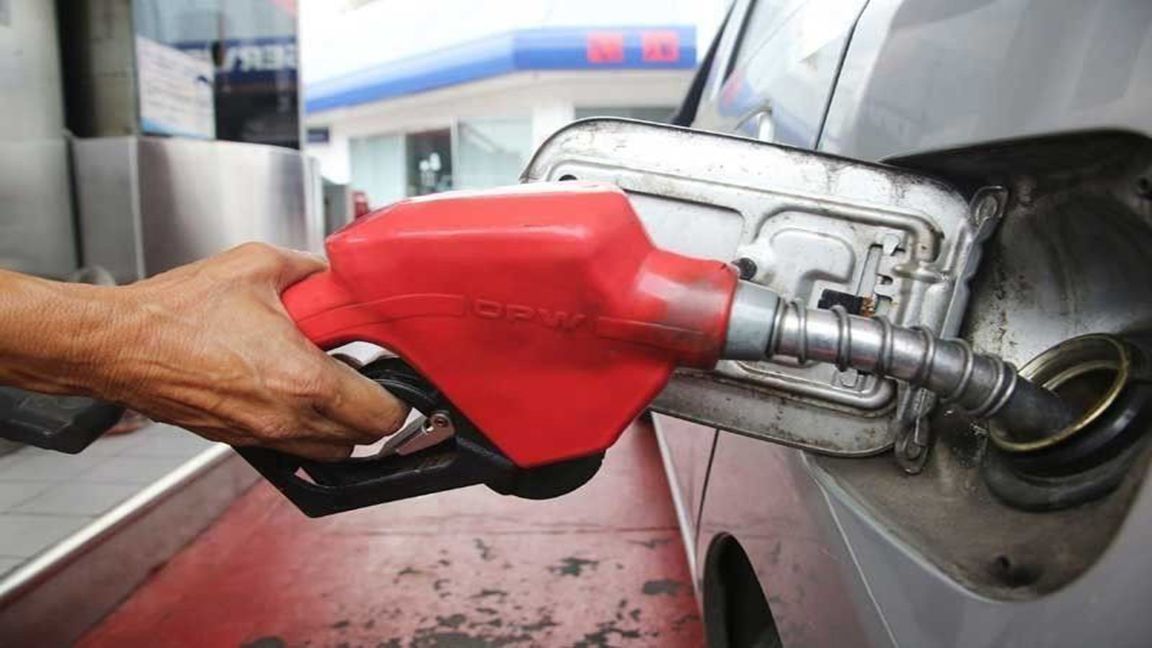The Department of Finance announced that government collectors reaped nearly P45 billion in taxes from marking a total of 4.31 billion liters of fuel in the third quarter of 2021 alone.
NEARLY P45 billion in taxes from marking a total of 4.31 billion liters of fuel were collected by the government in the third quarter of this year, improving its oversight on imported oil as part of efforts to stop smuggling and misdeclaration of goods.
Fuel marking or introducing a bio-chemical liquid in trace quantities into petroleum products at depots before distribution in the market is mandated under the TRAIN law (or the Tax Reform for Acceleration and Inclusion).
Chemical tax stamp
Fuel marking is done after the taxes are paid on refined and imported gasoline, diesel and kerosene.
In essence, the marker serves as a “chemical tax stamp” for all taxed fuels.
In this type of deployment, inspectors look for the dilution of the fully taxed fuel caused by the addition of a lower-taxed petroleum product that does not contain a marker.
P44.57-B
The Customs bureau reported it collected P44.57 billion from fuel marking in the third quarter as it intensified its activities in forcing industry players to comply with the demands of the program.
BoC and the Bureau of Internal Revenue had seized 6,357 liters of unmarked diesel in a Petromobil pump station in Arayat, Pampanga during a field testing.
Fuel markers serve as identifiers that BIR and Customs officers look for when carrying out field testing to determine the presence of illicit petroleum.
Income generator
As such, the agency looks at the program to level the playing field for industry players and generate income for the government.
Finance Secretary Carlos Dominguez said the BIR and Customs have collected a total of P299.27 billion from 30.54 billion liters of fuel as of Oct. 8.
Customs accounted for at least 90 percent of the amount at P269.49 billion, while BIR chipped in the remaining 10 percent at P29.78 billion.
By segment, the Customs and BIR assessed 18.62 billion liters of diesel and 11.75 billion liters of gasoline, including 163.63 million liters of kerosene.
He added that over 73 percent of the volume at 22.36 billion liters was taken from oil firms in Luzon, while industry players in Mindanao and Visayas made up the other 27 percent at 6.51 billion liters and 1.67 billion liters, respectively.
Petron Corp. contributed the largest share of more than 23 percent, or 7.13 billion liters, among fuel enterprises, followed by Pilipinas Shell Petroleum Corp.’s 5.72 billion liters and Unioil Petroleum Philippines Inc.’s 3.14 billion liters.
TRAIN Law
The government marks petroleum products in compliance with the TRAIN Law (RA10963).The program was rolled out on Sept. 4, 2019, to eliminate smuggling and misdeclaration of fuel and improve the tax take.
The Customs and BIR apply a chemical identifier on fuel to determine which product has paid the taxes.
If a product contains less than 95 percent of the marker level, its owner will be ordered to pay the duties, with additional fines.
In September 2020, Dominguez reported that BoC and BIR collected P131.17 billion in taxes and duties from the fuel marking program (on its second year then) on 12 billion liters of petroleum products marked as of second week of September.
The cost of the fuel marking program’s first year of implementation was shouldered by the government, but beginning Sept 4, oil companies have been paying for the fuel marking fees, the DoF website noted.
Marking fees
From the second year to the fifth year of implementation, oil companies are required under this fuel marking program to pay a very minimal amount of P0.06884 (VAT-inclusive) per liter of fuel marked under this project designed to combat oil smuggling.
The DOF, BOC and BIR issued last Aug. 28, 2020 Joint Memorandum Order (JMO) No. 1-2020 prescribing the implementing guidelines for the collection and disbursement of the marking fees from the second- to the fifth-year implementation of the fuel marking program.
Under the JMO, the BOC shall collect the fuel marking fees on imported petroleum product while the BIR shall collect the fees for locally refined or manufactured petroleum products.
It also states that the “Fuel Marking Fee shall be characterized as non-revenue collection, recorded as trust receipts and credited to the Fuel Marking Trust Account to be maintained by the Bureau of the Treasury (BTr).”
Tags: #DoF, BoC, BIR, #fuelmarking, #TRAINlaw, #economy
